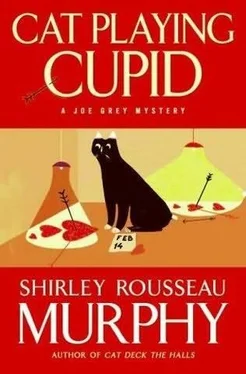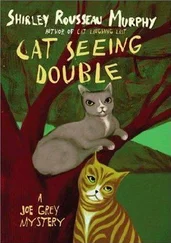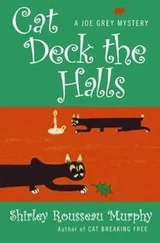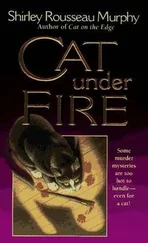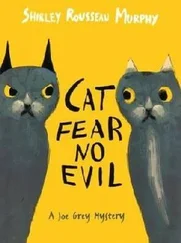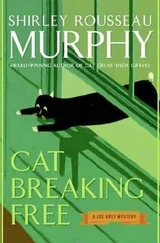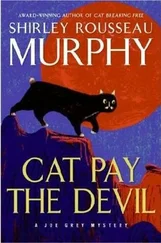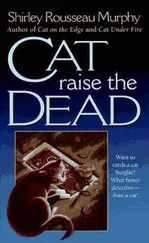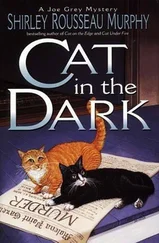The leather laces were still tied, and he thought crazily, how could a skeleton untie its own boots? Fragments of dirty hiking socks were stuck to the thin bones, and the incongruity, the sense of the unreal, turned him cold. He glanced at Ryan, expecting her to respond with equal unease. But his bride just stood looking, quiet and unruffled.
"Did Olivia hike?" she asked Dallas. "How strange. I imagined her…She was so into social functions. Fundraisers, high tea, charity bazaars. I didn't picture her tramping the hills. The photos I've seen of her…they were all in elegant dresses."
"The Pamillons had horses," Bern said. "Haven't you seen pictures from the thirties, of riders wearing laced-up boots over those flaring pants?"
"I guess I have," Ryan said. "But why would they bury her in riding clothes?"
During this exchange, Lindsey had moved out of the way of the coroner and detectives, and stood pressing close to Mike. He had his arm around her, but she was so rigid that Joe thought she must be trembling. The tomcat was so interested in her reaction that he nearly lost his footing on the roof's rotting edge-hastily he backed away.
Wouldn't that be a crock, Clyde's tomcat falls off the roof smack in the middle of the crime scene-a cat who should be down in the village hunting mice, doing cat things. Clyde would have to explain why he had brought his cat up here, and Mike would want to know if Clyde had needed his cat for Rock's tracking test, would want to know if Clyde had used cat scent to lay the trail, and wouldn't that blow it!
John Bern was numbering and labeling the bones, while Dallas examined the space around the grave in widening circles, collecting samples of earth and debris, his square face serious and intent. He was reaching beneath the overgrown camellia, carefully sorting through dead leaves, when he froze, his hand in midair.
"Something's here," he said softly, lifting away dead leaves. John Bern turned to look, then knelt beside him.
Carefully the two men cleared away leaves and earth until they had revealed a slab of pale marble, rectangular and precisely cut.
"'Olivia Pamillon,'" Dallas read, "'1880 to 1962.'"
Ryan looked at Clyde, stricken. Above, on the roof, Joe Grey crouched low, his ears down. This was a legitimate grave? A proper internment into which they had no business digging? The three of them had fabricated their complicated ruse, had brought Bern and the detectives up here for this? Had brought the law up here for nothing? And now they must watch, hiding their shame, as the frail bones were covered again-must hope, Joe thought crazily, that Olivia Pamillon's spirit could still rest in peace and wouldn't haunt them for the rest of their living days.
"Why," Davis said, "would they bury a family member here, and not in the family plot? And why without a casket?"
"These bones-" Bern began.
It was then that Lindsey stepped forward, touching John Bern's arm. "That is not Olivia Pamillon," she said softly. "That body is not Olivia."
"No," Dallas said, "it doesn't appear to be Olivia. Unless…" He looked at Lindsey. "Unless there were two bracelets."
IT HAD BEENtwo hours earlier that morning when Dallas picked up Lindsey at her apartment and they headed up the valley to her storage locker, to go through Carson Chappell's belongings. Across the green hills, fog drifted in a pale scarf that feathered and vanished as they moved inland up the two-lane road between pastures and small farms; in the yards of the scattered houses, yellow acacia trees bloomed, their honey-scented flowers bright against the pink blossoms of plum and cherry trees; daffodils buttered the meadows in wild clumps; and new colts played and rolled in the wet grass. Lindsey drank in the freshness of the valley, trying not to think about facing Carson's belongings again, not to think about opening those musty cartons that had been untouched for nearly ten years, about handling those small possessions that would stir her painful memories.
"The things we shared," she said, looking over at Dallas. "So sentimental and silly, you'll wonder why I kept them. Old theater tickets when we'd had a lovely evening. A sweater I knitted for him that he tore on a fencepost. And the photograph albums from our trips together, and from office parties."
"How many albums?"
"Maybe a dozen, but most are from before we met."
"How long did you work for Chappell and Gibbs?"
"Four years. We dated for about two years before he…disappeared."
She didn't want to look at the pictures again, she didn't want to stir it all up. Didn't want the weight, again, of the memories she had managed to put away. Why had she kept everything? Right now, she wished she'd tossed it all. Wished she'd never seen that newspaper clipping, wished she hadn't started this. What compulsion had made her come to the police with that clipping?
Dallas watched her with interest. She was more reluctant than she should be, considering that she was responsible for this investigation, that she had come to him. If not for her intense curiosity, Oregon might never have made the connection, might never have ID'd Chappell.
Probably he and Mike, seeing the article and looking over the cold cases, would have followed up. Or not, he thought. There'd been no indication that Carson had ever gone up there, that he'd ever left the state.
"Still looks new," Lindsey said as they approached the storage locker complex. "It was built the year I rented the smallest locker." The building was well maintained and still looked fresh. It had been designed with the charm of the area in mind, white plastered front, red tile roof, handsome plantings, so that it was not an eyesore in the community. The narrow gardens skirting the outside walls had grown lush now, with tall yellow Euryops, and lavender and early daylilies.
Dallas pulled the Blazer in through the wrought-iron gate, past the white stucco office, and on in between the rows of freshly painted metal buildings. The driveways had been swept clean. Her locker was in the center of the third row, a small, six-by-eight cubicle with her padlock on the door. Inside, it was half full of stacked, sealed boxes, and one filing cabinet that held her own back tax receipts, which she had seen no need to cart with her to L.A.
After the police had gone over his apartment, Carson's mother had sold his furniture but had kept his clothes and personal papers and all the other small detritus of Carson's life. Much of that life Lindsey had never known, had never been shared with her. Carson had kept the years after college to himself, didn't talk much about them though he'd been free enough with stories from his earlier years at Cal, and with stories of his childhood growing up along the Oregon coast.
Was that why he'd slipped away to Oregon? A sudden longing for the places he'd known as a boy? A sudden urge to be among the woods of his childhood, a last look back before he settled down to their new life? A need in some way so private that he hadn't wanted to discuss it?
Dallas had brought with him a lightweight folding table to make their work easier, and a small box cutter, and as he pulled out the marked cartons that he wanted and set them on the table, she slit them open and carefully laid out the contents, starting with the boxes of household linens and pots and pans and dishes-the black skillet crusted on the outside with years of buildup that Carson hadn't bothered to remove, the ugly set of yellow-and-brown dishes he'd promised to take to Goodwill, the espresso machine she'd given him for Christmas a few months before they were to be married.
Opening a box marked "Miscellaneous," examining coasters, an ashtray, a handful of keys, Dallas said, "This was all Carson's? None of it was yours?"
Читать дальше
